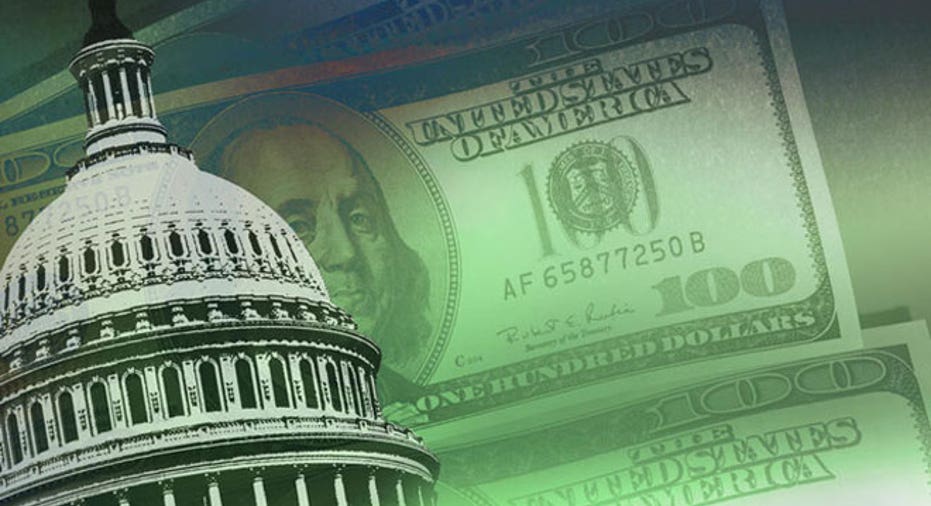Debt Ceiling Possibilities: Anything

Republicans in the Obama Era have demanded conditions on any bill that allows the federal government to borrow more money.
The 2011 debt-limit increase included about $1 trillion in cuts and the automatic, across-the-board spending reductions known as the sequester. Earlier this year, Republicans agreed to a debt-limit increase only if the Senate passed a budget.
Both Democrats and Republicans have used the debt ceiling in the past, to push their policy preferences.
House Republicans have only recently begun discussing their 2013 debt-ceiling strategy, floating a variety of policies to couple with any increase in the government’s borrowing limit.
Republican lawmakers have suggested coupling a debt-ceiling increase with tax and entitlement reform, approval of the Keystone Pipeline, domestic energy production, a long-term budget deal, spending cuts equal to the amount of the debt ceiling increase, curbs on federal regulations, or a delay in ObamaCare’s implementation, according to lawmakers and senior aides.
Republicans have the summer to agree on a strategy. Under the current debt limit, the federal government can continue to pay its obligations until sometime in October or the beginning of November, according to the most recent analysis by the Bipartisan Policy Center.
In an interview last month with FOX Business, House Speaker John Boehner said conversations with Republican members regarding the debt ceiling would continue. He refused to endorse a specific strategy, though noted that “I don’t know how you balance the budget without dealing with entitlement problem and these programs are important to millions of Americans, tens of millions of Americans and they will not exist if we don’t deal with them.”
President Barack Obama said he refuses to negotiate on increasing the debt ceiling, calling it a responsibility of Congress to raise the borrowing limit to pay for spending lawmakers already authorized.
“The president can say this but he is the person, when he was senator, who voted against increasing the debt (limit),” said Boehner. “This has always become a political football.”
Many Republicans see this debt ceiling debate as an opportunity to force structural changes to the federal government. Senate Minority Leader Mitch McConnell (R-KY) has offered the most specific public position among Republican leaders. “We're not going to agree to raise the debt ceiling without doing something about entitlements … this is what brings him to the table,” said McConnell of President Obama in a March interview with FOX Business. “He is, in effect, being drawn, kicking and screaming, to the table, when there's some event that pulls him in. And the event that pulls him into the discussion this summer is his request for us to raise the debt ceiling, so we'll be back at it again, trying to get him to join us to fix the entitlements and fix the country.”
“I'm only open to raising the debt ceiling if it's tied to measures that prevent us from having to raise the debt ceiling again in the future,” said Senator Marco Rubio (R-FL). “In essence, what’s driving our debt is our entitlement programs. It's not the discretionary spending. What's driving our national debt is that we have Medicare programs and a Medicaid program that's spending a lot more money than it's taking in.”
House Ways and Means Committee Chairman Dave Camp (R-MI) has been pushing tax reform for years. His committee may pass a tax overhaul plan by the end of the year.
“Any opportunity to advance tax reform, I’m on that street,” said Camp in an exclusive interview with FOX Business in April. “And it could be an opportunity, certainly, to get the kind of process and procedures to move tax reform through the Congress. I think it’s probably very difficult to have a tax reform just deposited in the debt limit in total but, again, I think it’s an opportunity that I’m going to pursue.”
As for attaching tax reform to the debt ceiling debate, Boehner said it is “always a possibility.”
Among House Republicans, there is also a push to ensure any bill that increases the debt ceiling receives enough Republican votes to pass the House without Democrats’ support. However, any bill that clears the House with that much Republican support is unlikely to draw enough votes in the Senate, where Democrats control the floor.



















